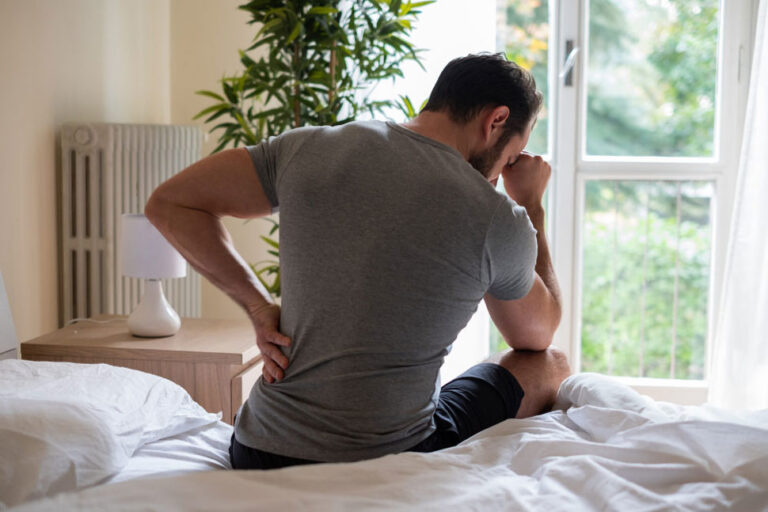Chronic sciatica most frequently results from a herniated disc, bone spurs, or spine constriction. Although sciatica can be uncomfortable, it typically goes away on its own after a few weeks, though it may come back later. Several otherwise typical behaviors, such as excessive sitting or wearing heels, are frequently to blame for persistent sciatica discomfort.
Even the most basic daily duties may seem hard when you have sciatica. For instance, sciatica may make it difficult for you to put on your shoes. Although sciatica is frequently thought of as a separate ailment, it is actually a symptom. Sciatica is the discomfort that results when your back’s tissues press against your sciatic nerve. Although the discomfort may go down your leg, it is actually coming from compression of the nerve root, which a bulging disc, an inflammatory muscle, or other musculoskeletal issues can bring on.
Sciatica is more likely to occur in elderly people, obese people, people who spend a lot of time sitting, people with diabetes, and people whose jobs require a lot of bending and heavy lifting. About 40% of people are predicted to develop sciatica at some point in their lives.

HERE ARE 5 THINGS THAT CAN MAKE YOUR SCIATICA WORSE
You’ve halted your motion
Even when your sciatica flares up, staying somewhat active will likely help you recover more quickly than resting and healing. When you have low back discomfort, staying in bed too much is very hazardous. But, it’s one of those things that’s easier said than done, and you might be unsure of what activities you can safely engage in without making your discomfort worse.
Too Much Sitting
Moreover, excessive sitting can cause or exacerbate sciatica pain. Another action that greatly strains your glute muscles, lower back, and sciatic nerve is sitting. Your sciatic nerve benefits from movement by getting a break, an opportunity to stretch, and a chance for blood to flow to the area. Try using a standing desk if you have a desk job, go for a little office stroll every hour, or set aside some of your lunch breaks for a walk alone or with a coworker. You can stretch your legs and back for a few minutes even within the office to increase blood flow and loosen up your lower body.
Your lifting technique requires improvement
If you frequently perform low back-taxing activities, such as heavy lifting, we strongly advise you to wear a support brace and to distribute the burden among your legs and knees. In fact, it’s a good idea to have a professional assess your lifting form. You can risk your discs even though you believe you are lifting correctly.
One lift with your low back can set off a series of events that will leave you lying on the floor with back agony if you have bad discs.

You lack sufficient strength
Degenerative disc disease is the main contributor to sciatica development, although there are other factors as well. The sciatic nerve can be compressed and the required cushioning between the bones of your spine is lost when the discs between your vertebrae expand, tear, or rupture.
Maintaining the strength of all the supporting structures around your spine is one of the best methods to stop degenerative disc degeneration. There is a reduced chance of disc damage when the muscles, ligaments, and other supporting tissues around your vertebrae and discs are robust. You can relieve strain on your discs by starting a strength and flexibility program that strengthens the supporting tissues, such as your muscles, tendons, and ligaments.
Things You Carry in Your Back Pockets
You can be unwittingly aggravating your sciatica if you habitually carry your phone, wallet, or other large and heavy objects in your back pockets. Despite the fact that this is not a recognized cause of sciatica, many people who experience it have created their own terms for it, such as “back-pocket sciatica” and “cell phone sciatica.” The piriformis muscle, which is situated next to your sciatic nerve, can experience unneeded pressure when you sit down with goods in your back pocket.
Our spine & pain providers are experts in identifying the cause of your sciatica-related back pain and, more importantly, in guiding you to therapies that effectively stop the pain. Make a visit to Specialty Care Clinics which specialize in treating sciatica. Call us today at (469) 545-9983 to book your appointment.
